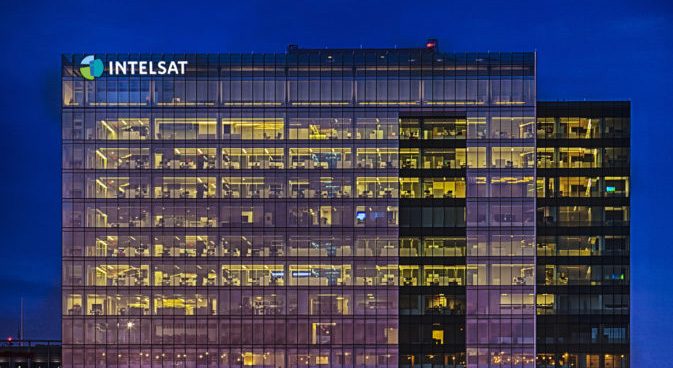Market reacts to SES, Intelsat rumours
March 31, 2023

The potential link between the world’s two largest satellite operators, SES and Intelsat, is intriguing the market. The news – at this stage more rumour than hard fact – follows on from a slew of similar mergers/acquisitions in the sector including Viasat’s upcoming purchase of Inmarsat, Eutelsat’s merger with OneWeb, and plenty of smaller satellite-based deals over the recent years.
The hard facts are that any agreement between the two rivals would position them in a better place to compete with new entrants such as Starlink and the proposed Jeff Bezos-backed Project Kuiper.
Bloomberg, in its report on the rumours, states that SES and Intelsat are in “advanced negotiations” and aiming to reach an agreement in the next few weeks. A satisfactory conclusion could value the combined business at more than $10 billion including some debt.
“The market is highly fragmented in a sector where scale is critical,” Credit Suisse Group AG analysts including Pilar Vico wrote in a research note on March 29th, noting there are still about 55 operators globally. “The synergies could be considerable.”
Goldman Sachs in its note says that the duo control about 40 per cent of the global market for fixed satellite capacity.
Berenberg’s equity analyst, Carl Murdock-Smith, said: “Obviously much depends on the terms of any deal, but in principle, removal of excess capacity from the industry and synergy possibilities should be taken well. Intelsat came out of bankruptcy last year, with its reorganisation reducing its debt from $16 billion to $7 billion. We believe that it has adjusted EBITDA of around $1 billion. Like SES, Intelsat is receiving a lot of C-band proceeds around the end of 2023. Intelsat will receive almost $3.7 billion from C-band Phase 2 (versus SES receiving $3 billion), which after tax, is likely to leave Intelsat’s leverage on 3-4x net debt/EBITDA. SES reported 2022 adjusted EBITDA of €1.1 billion, and €3.3 billion of net debt at the end of the year, plus €1.2 billion hybrids, so c€4.5 billion fully loaded debt, which is 4x net debt/EBITDA (the adjusted figures that SES quotes only include half the hybrid). SES will receive C-band proceeds of $3 billion at the end of 2023/start of 2024, reducing fully loaded net debt at the end of 2024 to €1.9 billion, which is 1.7x net debt/EBITDA.”
The deal could not progress without the firm backing of the SES board of directors and in particular the three Luxembourg entities (which all own ‘B’ class shares) via the State of Luxembourg and its 11.57 per cent of SES shares, the Banque et Casse d’Epargne de l’Etat (10.88 per cent), and the Société Nationale de Crédit et d’Investissement (SNCI) investment bank and its 10.88 per cent stake.
SES, coincidentally, is holding its AGM next week on April 6th.
Besides the obvious operational synergies it is also clear that there are very real financial advantages flowing to the two businesses. Top of the list is a near-$9 billion C-band compensation from the FCC for the cancellation of some 200 MHz of satellite frequencies.
Intelsat, officially domiciled in Luxembourg, is also sitting on a reported $4 billion of tax credits as a result of its Chapter 11 bankruptcy from which it emerged in 2022.
However, there would be objections. The pair’s US clients might complain about the risk of a monopoly supplier of fixed satellite services over the US. The US anti-trust authorities could be guaranteed to examine the deal very closely and might order divestments.
Armand Musey, founder of Summit Ridge Group and a very experienced observer of the satellite scene, said: “The biggest challenge may be anti-trust concerns, especially over North America. However, I’d expect many customers of both operators to weigh-in to oppose the deal out of concern for less competition. It may come down to whether regulators see new High Throughput Satellite (HTS) operators such as Hughes and Viasat, and LEO operators such as Starlink as sufficiently developed to be viable competition across Intelsat and SES’s customer segments. If not, it may require a divestiture of some satellite assets to get the deal done.”
Other posts by Chris Forrester:
- Collar departure: “Hard to see a positive read”
- Dish, DirecTV keen to merge?
- Boeing accused of technology theft
- Analyst: Satellite DTD market worth billions
- Bank: Rocket Lab value boosted by Virgin Orbit assets
- Analyst: “TV Industry consolidation inevitable”
- Intelsat: ‘Insider trading’ appeal lodged
- ESA boss praises SpaceX
- How Virgin Orbit lost a billion dollars
